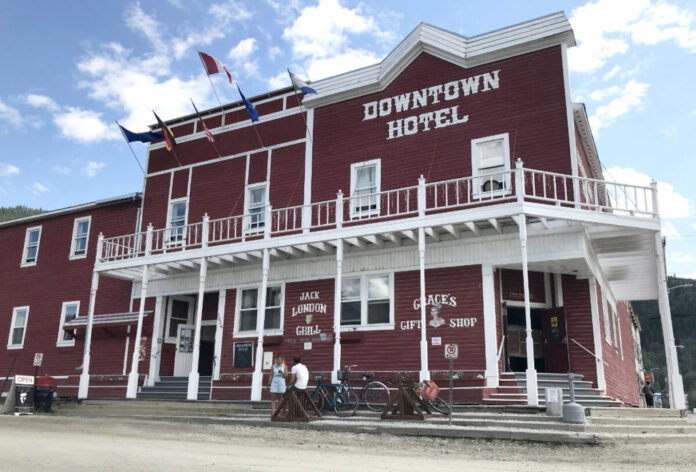Federal and territorial ministers have formally announced close to $2 million will be spent on the Yukon tourism sector’s response to resurging travel as the COVID-19 pandemic presses on.
But the Tourism Industry Association of the Yukon says that pocket of funding has run dry, as it has already been allocated.
Despite the recent formal announcement, Erin Kohler, who works in communications for the association, told the News there is no money left to spend.
The industry association has put in $25,000 on top of the $1.95 million highlighted in a May 27 joint news release from Dan Vandal, the federal minister of Northern Affairs and the Canadian Northern Economic Development Agency, Yukon MP Brendan Hanley and Ranj Pillai, the territorial minister of Economic Development and Tourism and Culture.
That includes $450,000 from the Yukon goverment.
The Yukon elevate tourism program is intended to “support tourism owners and operators as they adapt and grow beyond the pandemic” in the release.
It is being carried out by the industry association and designed and delivered through the Yukon First Nations Culture and Tourism Association and the Wilderness Tourism Association of Yukon.
“This approach ensures that the needs of Indigenous and wilderness operators are applied and that the entire sector can access these funds,” according to the release.
In the release, more than 40 business owners and operators have accessed the latest iteration of the program.
The industry association’s website indicates the program funds up to $30,000 per project.
As of Nov. 3, 2021, the program is no longer taking new applications, on the website.
The website notes the program is meant “to respond to the disproportionate impacts of the crisis on the tourism industry and to be better positioned to thrive now and going forward.”
“Elevate provides Yukon tourism operators with a simple funding path to modernize their businesses and adapt to current realities, which helps maintain the Yukon’s reputation as a world-class destination,” industry association executive director Blake Rogers said in the release.
The News reached out to the Yukon government with questions about what new and evolving challenges have been identified to them by the tourism industry and what kinds of adaptations, measures and changing opportunities are being reffered to in the release.
Francis Lefebvre, communications and product analyst in the department of Tourism and Culture, referred to the program guidelines. Those guidelines indicate the program has focused on funding projects under one of two themes that support tourism business and organizations: destination development to support projects that take advantage of post-pandemic opportunities through strategic planning for medium to long-term investments, and product development to help the industry adapt to the “new normal” and adopt more environmentally sustainable practices.
According to the release, the first iteration of the program came to life for 105 Yukon-based tourism businesses to make changes to their operations in order to function under changing public health guidelines through the federal regional relief and recovery fund in 2020-21.
The federal government’s investment in this program comes from the tourism relief fund, which has a budget of $500 million ending March 31, 2023.
This past week the two levels of government have put out a flurry of releases regarding tourism, including new Yukon government-supported tourism banners, in the territory.
The total budget for the banners, which feature the work of six Yukon artists, is $70,000. Cameron Webber, who works in communications for the department of Tourism and Culture, said in a June 2 email that includes the procurement process, design and production costs.
Meanwhile, the territorial government’s official opposition is urging the Liberals to eliminate barriers to travel to ease the burden on local tourism operators who are prepared to get “back to normal” after the last two years.
“Here in the Yukon, border crossing concerns were not adequately addressed earlier this year and uncertainty around delays resulted in cancelled cruise ship [and] bus excursions. In addition, reduced hours of operation and a significantly shorter overall season are resulting in the cancellation of trips to the Yukon via Alaska,” Yukon Party Leader Currie Dixon said in a June 2 release.
In the release, the Yukon Party wants the Liberals to drop vaccine mandates, random testing and duplicate health screenings from airports, and says the ArriveCan app should be discontinued for entry. At the land borders, the party is calling for hours and dates of operation to be restored to pre-pandemic levels.
READ MORE: Reduced hours, shorter season planned for Little Gold-Poker Creek border crossing
Contact Dana Hatherly at dana.hatherly@yukon-news.com













